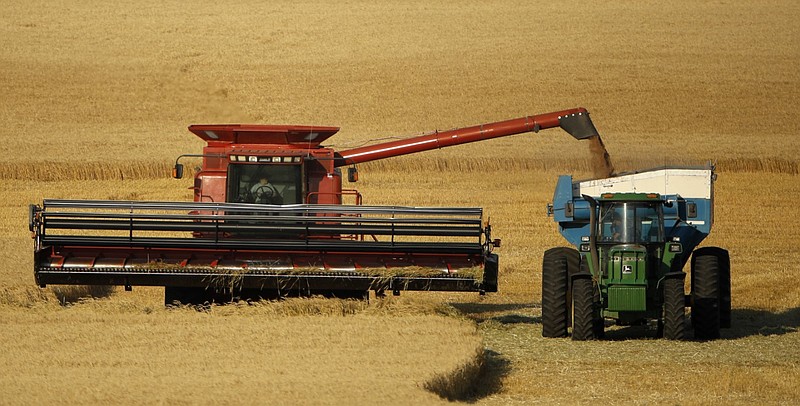Arkansas producers planted about 180,000 acres of winter wheat in the fall of 2020, according to a report released recently by the U.S. Department of Agriculture. The acreage is the highest for the state since 2017, when growers planted about 200,000 acres.
While the acreage represents an increase of more than 24% over 2019's plantings, Arkansas wheat acreage is still a fraction of what it was less than a decade ago, when growers planted about 680,000 acres in 2013, according to a news release.
Winter wheat seedings also increased modestly nationwide, rising 5% over 2019 acreage, to just shy of 32 million acres.
Scott Stiles, extension economist for the University of Arkansas System Division of Agriculture, said the increase in grain prices over the past several months likely contributed to growers' decision to plant more winter wheat.
"Like corn and soybeans, wheat prices have struggled the last few years," Stiles said. "The average producer price for wheat from 2016 to 2019 was $4.71. In most share lease arrangements, our growers need a price of $5.50 or better to cover input costs."
Stiles said that growers typically sell a given year's crop based on price signals from the Chicago Mercantile Exchange -- in this case, the 2021 crop will be based on the CME July 2021 futures contract.
"During the month of October, the July contract traded in a range of $5.69 to $6.25," Stiles said. "Futures continued to trade in a similar price range in November. Since then, the July contract has continued higher, trading to $6.60 this week, the highest level since December 2014."
Jason Kelley, extension wheat and feed grains agronomist for the Division of Agriculture, said the wet weather, and limited seed availability ultimately capped the state's total wheat production.
Kelley said that recently planted wheat acres in Arkansas appear to be off to a good start.
To learn more about extension programs in Arkansas, contact a local Cooperative Extension Service agent or visit www.uaex.edu.
